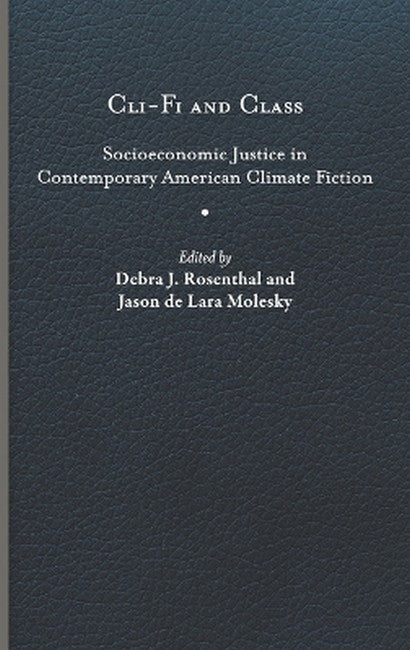Debra J. Rosenthal is Professor of English at John Carroll University and the author of Performatively Speaking: Speech and Action in Antebellum American Literature. Jason de Lara Molesky is a postdoctoral fellow at the Mahindra Humanities Center at Harvard University.
Request Academic Copy
Please copy the ISBN for submitting review copy form
Description
Introduction Hadestown and Other Myths for the Anthropocene: Company Towns and Proletarian Traditions in US Climate Fiction Burnout: Cli-Fi and Exhaustion Resource Utopia and Dystopia: Excavating Class in Afrofuturist Cli-Fi Film Dreaming a Decolonized Climate: Indigenous Technologies and Relations of Class and Kinship in Cherie Dimaline's The Marrow Thieves Climate-Change Fiction and Poverty Studies: Kingsolver's Flight Behavior, Diaz's "Monstro," and Bacigalupi's "The Tamarisk Hunter" Learning to Survive: Place-Based Education in Strange as This Weather Has Been and Parable of the Sower Settler Apocalypses: Race, Class, and the Erasure of Indigenous Resilience in Alaskan Cli-Fi Black: A Speculative Almanac for the End of the World Class and Revolution in the Climate Fictions of Kim Stanley Robinson: Transitions to Postcapitalism Heartland of Darkness: Nostalgia and Class in the Climate Fiction of Paolo Bacigalupi Whose Odds? The Absence of Climate Justice in American Climate Fiction of the 2000s and 2010s Cli-Fi and the Crisis of the Middle Class Homelessness in Lauren Groff's Florida Fiction: Climate Change and Displacement Epilogue: What has Changed Since Anthropocene Fictions? Contents Acknowledgments Notes on Contributors Index
"This collection fills an important gap and helps to reorient the debate about the climate crisis by underlining the fast and slow violence of structural poverty as well as catastrophic weather. Offering thought-provoking analyses of contemporary writers such as Lauren Groff, Octavia Butler, and Barbara Kingsolver, the contributors demonstrate that the cultural debate on the Anthropocene and on climate justice needs to include an ecopoverty lens and they further explain how climate narratives can help us to articulate new environmentalisms of the poor and of the eroding middle class. A timely, original, and valuable contribution." - Ben De Bruyn, UCLouvain, author of The Novel and the Multispecies Soundscape

